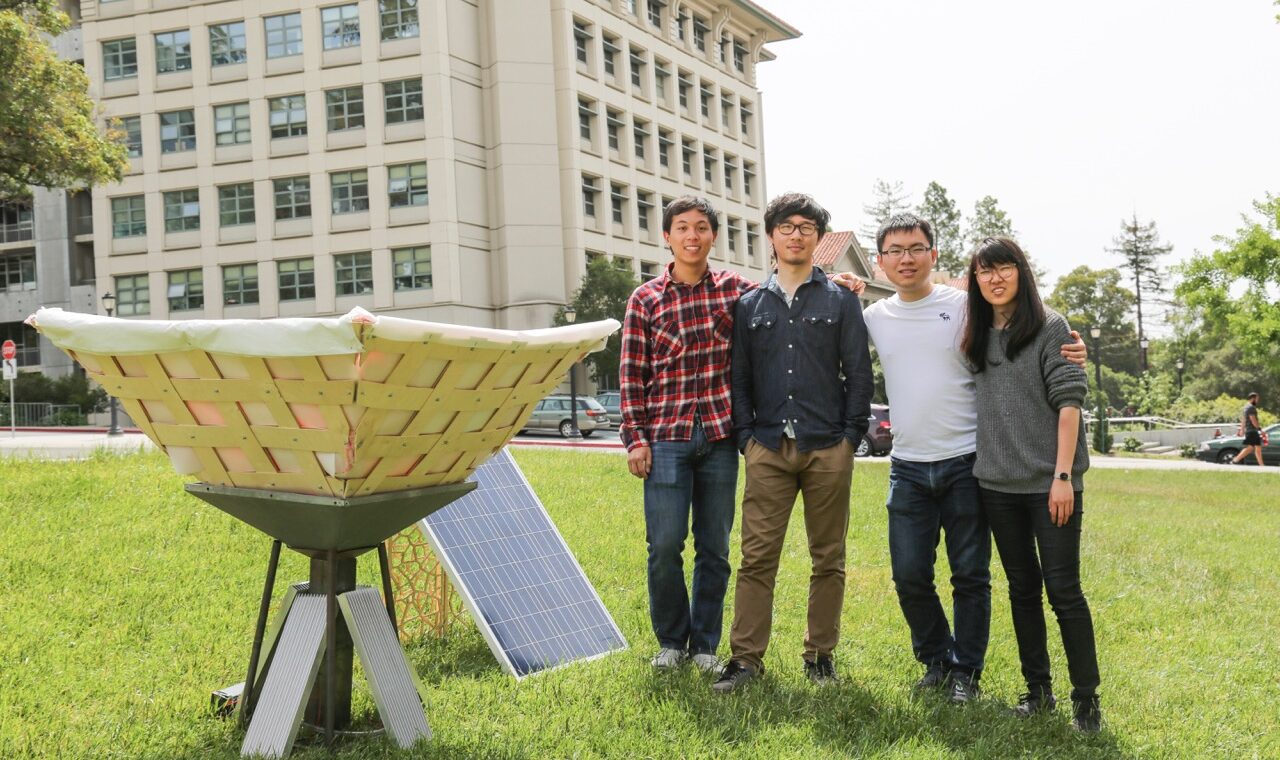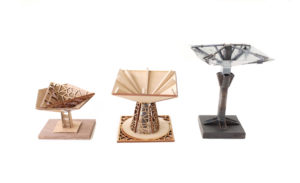
Two projects created by students affiliated with the Jacobs Institute have been recognized in Fast Company’s 2016 Innovation by Design Awards. The awards, judged by a diverse group of design leaders, represent a cross-section of innovative ideas and creations, with over 1700 submissions received from applicants in 41 countries this year. In its announcement of this year’s winners and finalists, Fast Company writes, “Each of [these] projects represent what’s best about design today: Big ideas, meticulously thought-out details, and a clear viewpoint about how we live now—and how it could be better.” Berkeley students have brought these elements together in two innovative projects honored in this year’s awards.
 Drill Sergeant, created by Eldon Schoop and Michelle Nguyen, is a finalist in the student category of the awards. Drill Sergeant is an ecosystem of augmented power tools that help new makers gain confidence and hands-on skills. Tools in the Drill Sergeant ecosystem are outfitted with sensors that provide realtime feedback, which appears directly on the surface or part a user is working on via a small digital projector mounted on the tool itself. Additional information, tips on safety and best practices, and visualizations are available on an adjacent tablet display. This immediate, seamlessly integrated feedback helps the user develop mastery while actively using the tool — lowering barriers to entry and empowering people from all backgrounds to create new projects. See Drill Sergeant’s page on the awards site or learn more here.
Drill Sergeant, created by Eldon Schoop and Michelle Nguyen, is a finalist in the student category of the awards. Drill Sergeant is an ecosystem of augmented power tools that help new makers gain confidence and hands-on skills. Tools in the Drill Sergeant ecosystem are outfitted with sensors that provide realtime feedback, which appears directly on the surface or part a user is working on via a small digital projector mounted on the tool itself. Additional information, tips on safety and best practices, and visualizations are available on an adjacent tablet display. This immediate, seamlessly integrated feedback helps the user develop mastery while actively using the tool — lowering barriers to entry and empowering people from all backgrounds to create new projects. See Drill Sergeant’s page on the awards site or learn more here.
 HydroLily, created by YC Chen, Jessica Chiu, Jimmy Huang, and Xian Sijun, is an honorable mention recipient in the student category. The design, part of an Innovation Collider project run by the Sutardja Center for Entrepreneurship and Technology in partnership with the Jacobs Institute, takes an interdisciplinary, bioinspired approach to the pressing global issue of expanding access to clean drinking water. Drawing from research on the resources many people and communities must devote to collecting safe water, the team designed a system that generates water from air by accelerating the naturally occurring process of condensation. The device, which is inspired by the water lily and takes the form of a “stem” and woven basket, has the potential to advance efforts to deliver drinkable water to remote areas, independent of access to municipal power or water infrastructure. See HydroLily’s page on the awards site.
HydroLily, created by YC Chen, Jessica Chiu, Jimmy Huang, and Xian Sijun, is an honorable mention recipient in the student category. The design, part of an Innovation Collider project run by the Sutardja Center for Entrepreneurship and Technology in partnership with the Jacobs Institute, takes an interdisciplinary, bioinspired approach to the pressing global issue of expanding access to clean drinking water. Drawing from research on the resources many people and communities must devote to collecting safe water, the team designed a system that generates water from air by accelerating the naturally occurring process of condensation. The device, which is inspired by the water lily and takes the form of a “stem” and woven basket, has the potential to advance efforts to deliver drinkable water to remote areas, independent of access to municipal power or water infrastructure. See HydroLily’s page on the awards site.
Check out the full list of award winners here.